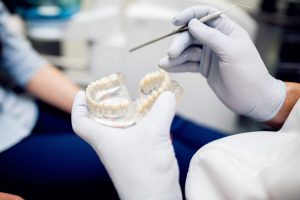Dental crowns are a type of dental restoration that is used to cover a tooth to restore its shape, size, and strength. Crowns can be made from a variety of materials, including porcelain, ceramic, and metal. Crowns are an important tool in restoring teeth that have been damaged by decay or injury.

Benefits of dental crowns
Crowns offer many benefits, including:
– restoring the function of a damaged tooth
– improving the appearance of a tooth
– protecting a weak tooth from further damage
– supporting a dental bridge
Who is a good candidate for dental crowns?
Dental crowns are typically recommended for people who have:
Here are just a few of the reasons why you may want to consider dental crowns:
If you have stained or discolored teeth, dental crowns can help to cover up these blemishes and give you a whiter, brighter smile.
If you have misshapen or chipped teeth, dental crowns can help to restore the natural shape of your teeth and give you a more uniform appearance.
If you have gaps in your teeth, dental crowns can be used to close up these spaces and give you a more seamless smile.
If you have teeth that are worn down from grinding or other habits, dental crowns can help to protect these teeth from further damage and restore them to their original size and shape.
If you have a tooth that is cracked or broken, a dental crown can help to hold the pieces of the tooth together and prevent further damage.
If you have a tooth that is severely decayed, a dental crown can help to preserve what remains of the tooth and prevent the need for extraction.
If you have had a root canal procedure, a dental crown can be used to protect the tooth from further damage.
Dental crowns are also often used in conjunction with other dental procedures, such as bridges or implants, to give you the best possible results. If you are considering any type of dental work, be sure to ask your dentist if dental crowns may be right for you.
How are dental crowns placed?
The process of placing a dental crown usually takes place over two visits to the dentist. During the first visit, the tooth will be prepared for the crown, and an impression will be made. This impression will be used to create a model of the tooth, which will be used to create the custom dental crown.
During the second visit, the dental crown will be placed on the prepared tooth and checked for fit. Once the fit is confirmed, the crown will be cemented into place.
What to expect after getting dental crowns?
After getting dental crowns, it is normal to experience some sensitivity. This typically lasts for a few days and can be relieved with over-the-counter pain medication. It is also important to avoid hard and sticky foods until you get used to eating with your new crowns.
FAQs about dental crowns
Q: How long do dental crowns last?
A: With proper care, dental crowns can last for many years. However, they may eventually need to be replaced due to wear and tear or damage.
Q: Are dental crowns covered by insurance?
A: Dental insurance typically covers a portion of the cost of dental crowns. However, coverage varies depending on the individual insurance plan
Q: How much do dental crowns cost?
A: The cost of dental crowns depends on the material used, the dentist, and the location. In general, dental crowns can range in price from $500 to $3000.
To conclude, dental crowns are a type of dental restoration that is used to cover a tooth in order to restore its shape, size, and strength. Crowns can be made from a variety of materials, including porcelain, ceramic, and metal. Crowns are an important tool in restoring teeth that have been damaged by decay or injury.